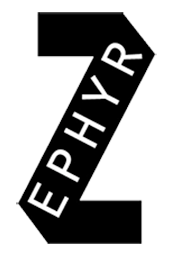A conversation between Erica Charis-Molling and editor Jim Kates

Let’s start at the beginning. How did the press get started?
ZP: In 1970, Ed Hogan of Somerville, Massachusetts, founded Aspect Magazine, one among many in the Boston literary scene, distinguished by Ed’s fine editorial eye and meticulous skill in production. In 1980, he decided to turn it over into a book press, and recruited several additional editors. Their first book was a rudimentary cookbook, their next few small books featured poets who had been featured in Aspect. But one of the new editors, Susan Gubernat, brought Zephyr a book that changed its mission and its destiny — The Complete Poems of Anna Akhmatova, translated by Judith Hemschemeyer, subsequently edited by Roberta Reeder. How that particular book came to Zephyr is a whole story in itself, but the point here is what Ed made of it. He guided it through a process of expansion until it became the two-volume definitive edition for its time in both Russian and English. I still remember the day Ed came running up to me in Harvard Square to announce proudly that the New York Times had named it one of the fourteen best books of 1990.
The Akhmatova turned Ed’s eyes toward Russia, and he followed that edition with an increasing engagement with Russian literature, contracting me to put together a bilingual anthology of contemporary Russian poetry.Unfortunately, just as that book (In the Grip of Strange Thoughts) was ready to go into production in 1997, Ed died suddenly.
Zephyr was left then in the hands of one of the other founding editors, Leora Zeitlin, who had since moved to New Mexico; and in my hands, in New England. We decided to keep the press going at least long enough to bring out In the Grip. And we have kept it going since. In 2000, Cris Mattison joined us, and it was his idea to expand off the anthology of Russian poetry into a series of individual books.
Tell us a bit about the press. What sets your press apart from other publishers?
ZP: That initial series of books by contemporary Russian poets showed us the need to fill a gap in international literature published in English. We added a Polish series (beginning with the anthology Carnivorous Boy Carnivorous Bird) and then a Chinese line. We specialize in bilingual editions of poetry from underserved languages and cultures. Although other presses have begun to follow our lead in publishing contemporary Russian and Polish poets, we are still unique in our Chinese — Mainland, Taiwan, and Hong Kong — list, as well as in our other Central and Eastern European and Asian books, from Albania to Kazakhstan and Burma. Most of our books are bilingual. All are designed for quality of production as well as the integrity of the text, and all are aimed not at academic specialists but at general readers if poetry.
How intriguing! Do you facilitate the connections between translators and these poets at all? I’m so curious about how these projects get started. Are all of those languages finding their way into your submission queue or are you initiating some of them?
Some of our translations come in over the transom, but most reach us through the translator, the poet, or a knowledgeable third party who hooks us up. The poet Bei Dao helped us initiate our Chinese connections. The network of the American Literary Translators Association is very useful. We have not yet reached out specifically for new languages, cultures, on our own, but are aware, for instance, that we don’t have any Japanese. Some countries — Romania and Korea notably — have been very active in pushing their own literatures. We have to be careful to respond to quality, and not to offers of subvention.

Can you give us a preview of what’s forthcoming from your catalog, as well as what in your current catalog you’re particularly excited about?
ZP: We’re excited by all our books. That’s why we publish them. We’ve just this week received the production text of Floral Mutter, by the Chinese poet Ya Shi, translated by Nick Admussen. Ya Shi is quite an important Chinese poet. As Admussen writes of him, “His physical, emotional, and intellectual independence from his peers — and from the institutions that surround them — shines through on every page.” If you haven’t yet heard of Ya Shi — that’s the point: we bring you writers and books you don’t already know. Also this week, we have in hand the text for final editing of Marija Knežević’s Breathing Technique, translated by Sibelan Forrrester. Knežević is the second Serbian poet we’re publishing — both, you might note, women, because we’re committed to showcasing women writers from cultures where they don’t always get fair notice. Our first Serbian book was Directions for Use by Ana Ristović, translated by Steven and Maja Teref, which was a finalist for the National Book Critics Circle award two years ago. And maybe most unusual, coming out this fall is the avant-garde Vietnamese-born Israeli poet Vaan Nguyen’s Truffle Eye, translated from Hebrew by Adriana Jacobs.
Oh! Now there’s an interesting design question. In a bilingual Hebrew-English poetry collection does the book read in one direction or change directions like Raquel Salas Rivera’s “lo terciario / the tertiary”? (And what are there other design puzzles that come with producing bilingual books?)
Our two previous Hebrew books are printed conventionally, with the Hebrew verso and the English recto. This makes for a slightly more crowded gutter than we would like. We have toyed with the idea of doing the next book with the English verso and the Hebrew recto but rejected that as unnecessarily unconventional. Still, we’re always looking to see how well a work can be presented, how easy on the eye. For In the Grip of Strange Thoughts, our designer found a matching set of Cyrillic and Roman fonts (Pushkin and Dante) that had been created specifically for poetry. Needless to say, proofreading in the various languages is hell on wheels, but necessary.
What are you visions and goals for the press? Where you see publishing going in general?
ZP: Our first goal at Zephyr is to keep celebrating the poets we publish, and to keep publishing new work from people and places you may not have been introduced to. Our longer term goal is to to see if we can pass Zephyr along into fresh hands as those of us who are running it now — three unpaid part-time people, all of us growing older — need to find new blood.
What advice would you offer someone looking to publish with you?
ZP: Do your homework first. Please. Most of what people send us is completely inappropriate for our press. If you have translated a poet from somewhere interesting in the world (we’re particularly looking to African possibilities) then my standard answer to a preliminary query is this: We’re a very small press, and can take on only a little bit of what we genuinely like and think is deserving, so your chance of our publishing you is very small. On the other hand, we’re in this business because we want to read what’s out there, and we’ll read attentively what falls within our sphere of interest, so please don’t be afraid to try us.
What advice would you offer someone thinking of starting a small press?
ZP: Plastics.
Hm, now you’ve got me curious! Are we talking the slang for credit card or are you a fan of practical storage solutions?
My mordantly ironic allusion is to the movie The Graduate. In general, I would not advise anyone to start another small press. Starting one of your own nowadays is mere vanity, in a business so glutted. If you are attracted to literary publishing, find a publisher you admire already in existence, and attach yourself to that one, helping to make it better. And I always ask those who do want to get into it, “Is it because you love literature, or because you hate money?”
Erica Charis-Molling is a creative writing instructor and librarian at the Boston Public Library. Her writing has been published in Crosswinds, Presence, Glass, Anchor, Vinyl, Entropy, and Mezzo Cammin. She’s an alum of the Bread Loaf Writers’ Conference and received her M.F.A. in Creative Writing from Antioch University.
